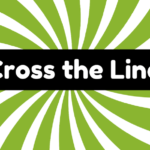The phrase "heads will roll" signals urgent accountability in leadership when decisions lead to failures. Its origins trace back to the mid-1800s, reflecting society's demand for consequences. In today's corporate and political worlds, the concept remains relevant, emphasizing the importance of ethical behavior and responsibility. When managers make poor choices, there's often a call for repercussions, like job losses or disciplinary actions. This phrase not only illustrates the potential fallout from leadership failures but also highlights the cultural expectation for swift responses. Understanding its implications could help you navigate similar scenarios in your own life.
Synonyms
When discussing the phrase "heads will roll," you might consider synonyms that convey the same sense of accountability and consequences. Exploring alternatives isn't just about wordplay; it taps into the very essence of consequences anticipation and accountability measures. Recognizing different phrases can deepen your understanding of the stakes involved.
- Disciplinary actions
- Heads will roll
- Pay the price
- Face the music
Each term reflects a looming sense of urgency and accountability. In an era demanding innovation, we should be astutely aware that these expressions both signal and scrutinize the outcomes of our choices. Words shape perceptions, so choosing wisely can rally a proactive approach rather than accepting the inevitability of harsh repercussions.
Example of Sentences
Understanding the phrase "heads will roll" can be enhanced by examining practical examples that illustrate its usage in various contexts. These sentences highlight the need for accountability measures and consequences management in different scenarios:
- You can expect consequences when management discovers missing stock.
- There's an intense anticipation of repercussions in the banking world upon news publication.
- A CEO might see multiple dismissals within the company due to poor choices.
- Strict adherence to protocols is required during official visits to avoid negative fallout.
These examples emphasize how critical it is to maintain accountability and address failures swiftly. Ultimately, recognizing the weight behind the phrase serves as a reminder that failure to act could lead to dire outcomes for those in charge.
Origin
The phrase "heads will roll" carries a vivid historical significance that evokes the imagery of punishment, particularly decapitation. Its origins trace back to mid-1800s America, with newspapers reporting on strict consequences for officials. The societal implications are profound; this phrase reflects deep-rooted beliefs about accountability and the harsh reality of justice. It hints at a culture that demands repercussions, especially when leaders fail. The notable usage by figures like Adolf Hitler highlights its dark ties to revolutionary tribunals, reminding us that such phrases often carry troubling legacies. When you hear it today, consider the weight of accountability it implies in corporate or political spheres. This isn't just language; it's a call for responsibility in a world that craves justice.
Collocations
Beyond its historical context, "heads will roll" has become a staple in discussions around accountability, and it often pairs with specific collocations that enhance its impact. When talking about corporate accountability and disciplinary actions, consider phrases like:
- Consequences for leadership failures.
- Repercussions for unethical decisions.
- Sacrifices for financial mismanagement.
- Accountability for project failures.
These collocations evoke a sense of urgency and seriousness. They remind you that the consequences are real, and those in charge can't escape their responsibilities. In today's fast-paced environment, stating these phrases can drive the point home, emphasizing the dire need for ethical behavior. Embracing and communicating these terms effectively can foster a culture that prioritizes innovation while keeping accountability in check.
How to Use in Everyday Language
When discussing accountability in everyday language, you can easily work in the phrase "heads will roll" to convey the seriousness of a situation. This expression isn't just a catchy line; it carries a cultural significance that highlights the consequences of failure. In everyday applications, you might say it when discussing workplace mishaps or political failures, reinforcing that actions have real repercussions. Whether you're addressing a missed deadline or unexpected financial losses, this phrase effectively underscores urgency. However, be mindful of its dramatic flair—using it too often can dilute its weight. Overall, understanding how to wield "heads will roll" thoughtfully allows you to navigate conversations about responsibility with clarity while prompting necessary discussions about accountability in various contexts.
Why Is It Still Relevant Today?
In today's fast-paced world, accountability remains a hot topic across corporate and political landscapes, making the phrase "heads will roll" particularly relevant. As organizations face scrutiny for their actions, corporate accountability takes center stage, emphasizing the serious repercussions of missteps. You should recognize that historical consequences, like major scandals leading to leadership shake-ups, remind us of the stakes involved. This phrase encapsulates the urgency that often appears during crises, highlighting the expectation of swift action. It also reflects a society tired of empty promises. If individuals in power don't take responsibility, then trust erodes, and innovation suffers. Recognizing this relevance helps you understand the ongoing demand for ethical behavior in our evolving world.







